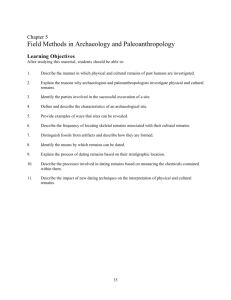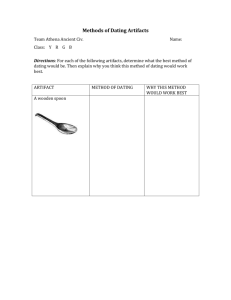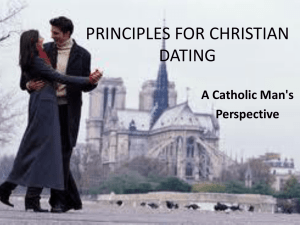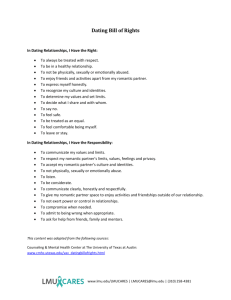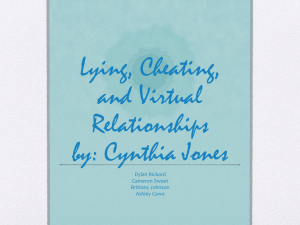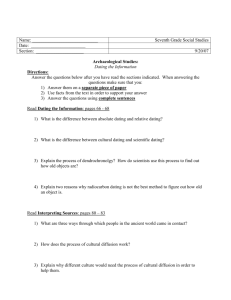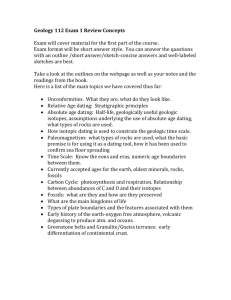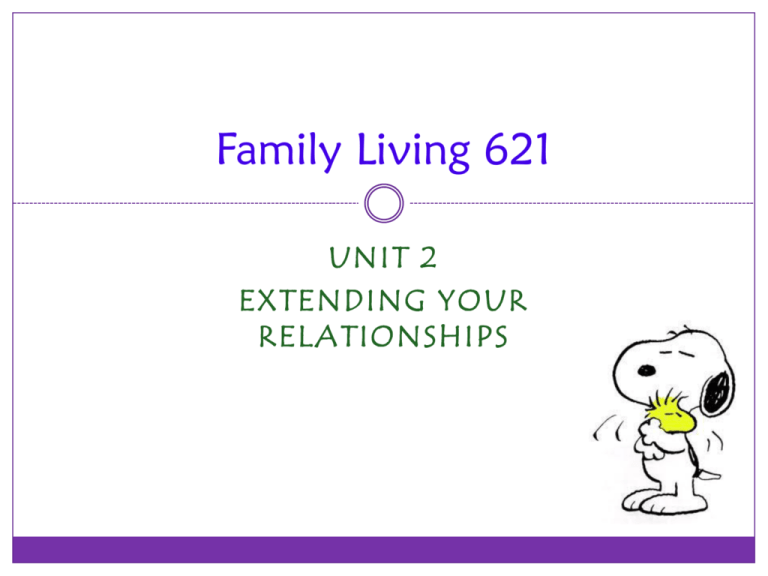
Family Living 621
UNIT 2
EXTENDING YOUR
RELATIONSHIPS
Or…
Great Love Songs
Elvis – Can’t Help Falling in Love
http://www.youtube.com/watch?v=BTZ9kkhOYN4
Great Love Stories
What are you favourites?
Why do we love them so
much?
Consider the following statements
I believe in love at first sight
The love of your life comes along only once
Love is all we need, we can live on love
It is impossible to love two people at once
Love is blind
It is better to have loved and lost than never to have loved at all
Activity – Your Love Scale – where do you fall?
What is Love?
• What does the word love mean to you? What are the first words that pop into your head? What do you think of when you think of love
15 sec. reflection:
What does the word “love” mean to you? Share.
How is love defined?
What Kids have to say about love
Love is when your mommy says she'd rather be in hell with you than in
heaven with Jesus―Mikey, age 6
Love has something to do with how you smell. That's why perfume and
deodorant are so popular.—Mae, age 9
It isn't always how you look. I'm handsome as anything, and I haven't got
anybody to marry me yet.—Brian, age 7
My mommy loves me more than anybody. You don't see anyone else kissing
me to sleep at night.—Clare, age 6
I'm in favor of love as long as it doesn't happen when "Dinosaurs" is on TV.—
Jill, age 6
When someone loves you, the way they say your name is different. You just
know your name is safe in their mouths.—Billy, age 4
What Kids have to say about love
Love is when a girl puts on perfume and a boy puts on cologne and they go out and smell
each other.—Kari, age 5
Love is when mommy sees daddy smelly and sweaty and still says he's handsomer than
Robert Redford.—Chris, age 7
One of you should know how to write a check. Because even if you have tons of love, there
will still be lots of bills.—Ava, age 8
Love is when you give somebody most of your French fries without eating any of theirs.—
Chrissie, age 6
Love is when mommy makes coffee for daddy and she takes a sip to make sure the taste is
OK.—Danny, age 7
You really shouldn't say I LOVE YOU unless you mean it. But if you mean it, you should say
it a lot. People forget.—Jessica,
What Kids have to say about love
If you want to learn to love better, you should start
with a friend you hate.—Nikka, age 6
The rules goes like this: if you kiss someone, you
should marry her. It's the right thing to do.—
Howard, age 8
Love is when mommy sees daddy on the toilet and
doesn't think it's gross.—Mark, age 6
I Am a Rock
Listen to this song while reading the
learning expectations for this unit.
https://www.youtube.com/watch?v=
Vzo-EL_62fQ
Unit Learning Expectations
Examine theories about love and dating
Develop an understanding of intimacy, how it is
developed and why it is important
Review good communication
Develop decision-making skills in matters related to
love and dating
Discuss the challenges and rewards of being single
and why people marry (challenges and rewards )
3. The Greeks View of Love
a. Agápe means brotherly love . It can
be described as the feeling of being
content or holding one in high
regard.
b. Éros is passionate love, with
sensual desire and longing. It can
also apply to dating relationships as
well as marriage.
c. Philia means friendship in modern
Greek. It includes loyalty to friends,
family, and community
Who do you love?
Get your heart out
Have you ever considered what qualities you want in
a partner?
Why might it be important to have clear guidelines
on what you want in a partner?
Make a list of the “must-have” qualities you have for
a potential partner, and a list of “nice-to-haves”
Approx 10 qualities
Your Heart
What characteristics
Are non-negotiable? – circle these
Which ones could you live
without? Put an X beside these
Which ones could change
over time? Put a question mark beside these
Debriefing
Look at your heart
It is important to think about what relationship
qualities are important to you
No one has ALL the relationship qualities you value
It is important to prioritize the relationship qualities
you value most and to ensure your relationships have
these to be as healthy as possible
It is important to GET OUT if it has qualities you do
not value or if the relationship is abusive
4. The Love Ladder
A.
LOVE FOR PRIMARY CAREGIVERS: Love grew beyond yourself
to include your primary caregiver as you began to associate your
feeling of satisfaction with him/her as your needs were met
(clothing, diapering, feeding and loving)
B.
LOVE FOR OTHER RELATIVES: The love of grandparents,
aunts and uncles and other relatives bought a special sense of
security, understanding, and perspective.
C.
FIRST LOVE OUTSIDE THE FAMILY: this first love outside of
the family was probably your first best friend.
D.
LOVE FOR SOMEONE OLDER: This type of love is sometimes
called “hero worship”. This person was your role model and
exemplified what you wanted to be someday.
The Love Ladder Continued
e. LOVE FOR COMPANIONSHIP AND PERSONAL GROWTH:
This love begins with general interest in sexuality and continues
through dating and life time companionship.
f.
LOVE FOR CHILDREN: With the feeling of being in a
permanent love relationship, comes a nurturing, protecting kind
of love for children. This is an unselfish love that provides the
ability to give love without expecting anything in return.
G. MATURE LOVE FOR OTHERS: This love affects those you love
dearly, but also includes many people you meet and encounter. This
is a love for humankind in general.
Part IV: Perspectives on Love
6. Biological perspectives argue that love is
grounded in evolution, biology, and chemistry. The
focus is on physiological responses caused by natural
amphetamines in the body.
7. Sociological perspectives claim that culture is
key to love.
Theories about Love – There are 4 we’ll discuss
a. Attachment theory
b. Social Exchange theory
c. Reiss’s Wheel Theory of Love
d. Sternberg’s Triangular Theory of
Love
A. Attachment theory
suggests our primary motivation is to be connected with other
people.
B. Social Exchange Theory
you “don’t get something for nothing”
Love is given and returned
is useful for explaining how love relationships change over
time.
adolescence: Love is usually intense and self-centered, romantic
love is short-lived
adulthood: perception of costs and rewards change, for example,
nurturing and patience may outweigh looks
later life: moral values, personality, and good humor may take
precedence
Critics argue this is too mechanical
Can love be given, but not returned?
Is love always a two-way street?
D. Sternberg’s Triangular Theory of Love
has three elements.
Intimacy
Passion
Decision/commitment
Different degrees of the
three elements form
different types of love
relationships.
C. Reiss’s Wheel Theory of Love
includes four stages:
Rapport
Self-revelation
Mutual dependency
Need fulfillment
The stages can be
repeated many times
Part V: Functions of Love and Loving
1. Love ensures human survival.
2. Love prolongs life.
3. Love enhances physical health.
4. Love improves the quality of our
lives.
What is love?
Can love be learned?
Do you define love as simply a feeling?
Or is it also an expectation?
Can you be convinced to love someone?
Love and Infatuation
http://www.youtube.com/watch?v=Jijt-hP1jxA
Notes on Love verses Infatuation
Story – Appointment With Love - what is she looking
for?
Activity - Love verses Infatuation
March 3rd and 4th
Love essay?
Myers Briggs
http://videos.komando.com/watch/4830/viral-
videos-this-comedian-perfectly-sums-up-parenthood
Notes of Reiss’s Wheel Theory
Complete worksheet on triangle theory (go over)
Complete Defense Mechanisms
Be The Teacher
Schedule This Week
Monday – Christine
Tuesday – Illeana/Brandon
Wednesday – Braelyn
Thursday – Rachael
Friday – Sexting Article is due - Test Review?
With all the heartbreak…
Why bother???!
Am I Pretty?
http://www.youtube.com/
watch?v=8D9mqqkgH-0
Heartbreak is often what
teaches us what we want or
need in love
How do you deal with it
best??
What’s In A Relationship?
Activity – Task Cards
Healthy Relationship Qualities
Unhealthy Relationship Qualities
In Groups: How to end a relationship?
Do
Don’t
How to end a relationship?
How should you do it?
Do it in person, in private, tell the truth
How should you never end a relationship?
Text, email, message machine, get a friend to do it,
use a line, under “the influence”
Individually
The dos and don’ts of heartbreak
Make a chart – write down what a person should
NEVER do when someone breaks their heart
Next – write down what a person SHOULD do when
someone breaks their heart
Class Discussion
Media’s Influence on Dating and Heartbreak
http://www.cnn.com/2009/CRIME/04/07/sexting.bust
s/#cnnSTCVideo
http://www.cnn.com/2013/03/17/justice/ohiosteubenville-case/
Rhetaeh Parsons?
http://www.ibtimes.co.uk/anonymous-name-rapistssuicide-rehtaeh-parsons-nova-455998
Sexting – discuss – response is due at end of class
Read article
http://www.cbc.ca/doczone/episode/sext-up-kids.html#
Sexed Up Kids
I have found the paradox that if you love
until it hurts there can be no more hurt,
only love.
Mother Teresa
What is Love?
Unit 2 Assignment – Due
Finish discussion on unhealthy
relationships
Dating and Sexuality
WATCH DOC ZONE – DATING CONFIDENTIAL
- ANSWER QUESTIONS AS WE FOLLOW
ALONG!
Dating Realities
How do you find, and keep
love in your life??
Question Box
submissions – what do
you want to learn about
dating and romantic
relationships?
“when to hold ‘em, and when to fold’ em”
Dating: Important Questions
What are common barriers in asking someone out?
How can you deal with early-on rejection?
What are great first date ideas?
What are suggested “do’s/don’ts” of first dates?
What are the advantages and disadvantages to group
dating? (double-dates, groups of couples or couples and
friends)
Notes on dating
Activities: Dating
On your chart
positive characteristics of girls/guys on a date
negative characteristics of guys/girls on a date
Dating: A Film Study
Dating Confidential
http://www.cbc.ca/documentaries/doczone/video.html
http://www.cbc.ca/player/Shows/Shows/Doc+Zone/The+Confi
dential+Series/ID/1783959910/
Follow along and answer the questions as we go!
1. Dating: Early Stages
Often labeled as lust or infatuation, this could also be
a transition from friendship to more intimate
relationship
What is important to establish during this phase of
the relationship?
Boundaries, limits, values, needs, desires, goals,
communication
2. Dating: Challenges
Feelings of low
confidence, low selfesteem
Casual encounters and
emotional rejection
Cheating
Conflicts with family and
friends
Frequent fights
Emotional
manipulation/mind
games
Physical health issues
Mental health issues
Culture clash
Abuse
Break-ups, “on-again,
off-again”
Moving on
3. Singlehood – Doc Zone – Flying Solo
Why choose to be
single?
What are the
disadvantages of being
single?
What do single people
need to do to avoid
feeling lonely?
“How to be Alone” by
Tanya Davis
http://www.youtube.com/watch
?v=k7X7sZzSXYs
4. Experiencing Love
A. Are women or men more romantic?
B.
Research suggests men are more romantic.
Women are more likely to expect “the trappings” of romantic
love.
Are women or men more intimate?
Many women want to feel close emotionally before being
sexual.
Many men regard sex as emotional closeness.
For women, intimacy may mean talking things over.
Men may feel that doing things for their partner shows their
love.
5. A Global View
Evidence of romantic love has been
found in 89% of 166 different cultures,
which makes it a “near-universal”
human phenomenon.
In many countries, arranged marriages
are the norm because respect for
parents’ wishes and traditions are more
important than romantic love.
Intimacy
6. The key to intimacy usually lies in the strength of the
communication between partners
Knowing your partner, his/her needs, wants, likes, etc.
Feeling connected and well-balanced
7. So what are ways to be a good communicator?
Make time for talk and each other
Consciously listen
Use ‘I feel’ statements
Be aware of accusatory tones
Do not use your partner for ‘venting’ excessively
Develop an awareness of body language
Give space when needed
Show how you feel
8. Five Languages of Love
Words of Affirmation Hearing the words, “I love you,” are
important— so are compliments Insults can leave this person shattered
and are not easily forgotten.
Quality Time Being there for this type of person is critical —with the
TV off, fork and knife down, and all tasks on standby—makes your
significant other feel loved. Distractions, postponed dates, or the failure
to listen can be especially hurtful.
Receiving Gifts the receiver of gifts thrives on the love,
thoughtfulness, and effort behind the gift. The perfect gift or gesture
shows that you are known, you are cared for, and you are prized above
whatever was sacrificed to bring the gift to this person. A missed
birthday, anniversary, or a hasty, thoughtless gift would be disastrous to
this relationship.
8. Five Languages of Love – Cont’d
Acts of Service Anything to ease the burden of
responsibilities weighing on an “Acts of Service”
person will speak volumes. The words s/he most wants
to hear: “Let me do that for you.” Laziness, broken
commitments, and making more work for them tells
speakers of this language their feelings don’t matter.
Physical Touch Hugs, pats on the back, holding
hands, and thoughtful touches on the arm or face— can
all be ways to show excitement, concern, care, and
love. Physical presence and accessibility are crucial,
while neglect or abuse can be unforgivable and
destructive.
9. Experiencing Love
Barriers to love occur at both macro and micro levels of
society.
1.Mass Society and Demographic Factors
a. Technology can decrease opportunities for face-to-face
interaction
b. Variables such as age, income, and occupation also shape
our love experiences
2. Double Standards can create a lack of mutual trust and lead
to playing games.
3. “Me-first” individualism can lead to a preoccupation with
self.
4. Personality and family characteristics sometimes get in the
way of finding love.
10. When Love Goes Wrong
a. Narcissists are people who have exaggerated feelings of power
and self importance.
b. Jealousy can occur when people believe a rival is competing for
a lover’s affection.
c. According to evolutionary psychologists,
Men are worried about sexual infidelity.
Women are worried about their partner’s emotional
entanglements.
d. Some obsessed jealous lovers become stalkers.
They may make numerous phone calls, send gifts, or
continuously check up on their partner’s whereabouts.
Cyberstalking involves threatening behavior or unwanted
advances using email, instant messaging, etc.
Victims of Cyberstalking
11. When Love Goes Wrong
Other forms of controlling behavior include
threatening to manipulate or withdraw love
creating guilt feelings
emotional and physical abuse
What’s In A Relationship?
Activity – Task Cards
Healthy Relationship Qualities
Unhealthy Relationship Qualities
With all the heartbreak…
Why bother???!
Am I Pretty?
http://www.youtube.com/
watch?v=8D9mqqkgH-0
Heartbreak is often what
teaches us what we want or
need in love
How do you deal with it
best??
In Groups: How to end a relationship?
Do
Don’t
How to end a relationship?
How should you do it?
Do it in person, in private, tell the truth
How should you never end a relationship?
Text, email, message machine, get a friend to do it,
use a line, under “the influence”
Individually
The dos and don’ts of heartbreak
Make a chart – write down what a person should
NEVER do when someone breaks their heart
Next – write down what a person SHOULD do when
someone breaks their heart
Class Discussion
Activities: Dating
Dating on a Dime: Group Assignment
Design a great date for less than $50 (gas not included)
You have 15 minutes to do this
Eng 421 will vote on the best date, keep it clean!
Family living 621
Unit 3
SEXUALITY
Learning Expectations
Understand reasons for getting married
Be aware of the various stages of marriage
relationships
Develop an awareness of what is generally found in a
healthy and satisfying marriage relationship
Develop an awareness of methods for resolving
conflicts in a marriage relationship
Examine diverse wedding rituals/ceremonies
Be aware of the legal implications of marriage
Sexuality
Physical attraction and sex are a major component of
romantic relationships
Physical relationships can be satisfying for sexual
desire, and in helping couples with intimacy
Important decisions in sexuality need to be made
The emotional status of each partner
Protection from STI’s and other health concerns
Birth control
The Reproductive System: Review
Sexually Transmitted Infections and Methods of
Birth Control
Healthy Sexual Relationships
Sexual orientation and Gender Identity
Coming “out”
Gender issues
Homophobia and society
Building and providing support systems
Charlottetown Rural’s Gay-Straight Alliance
Assignments

